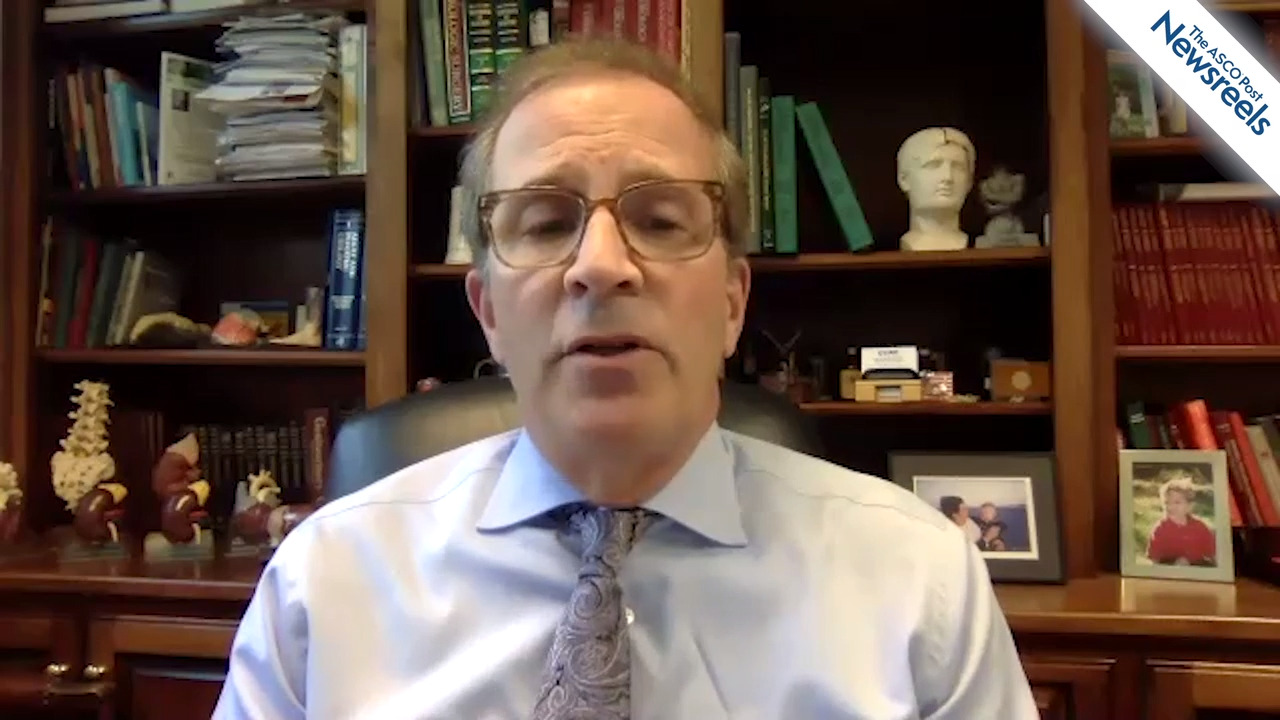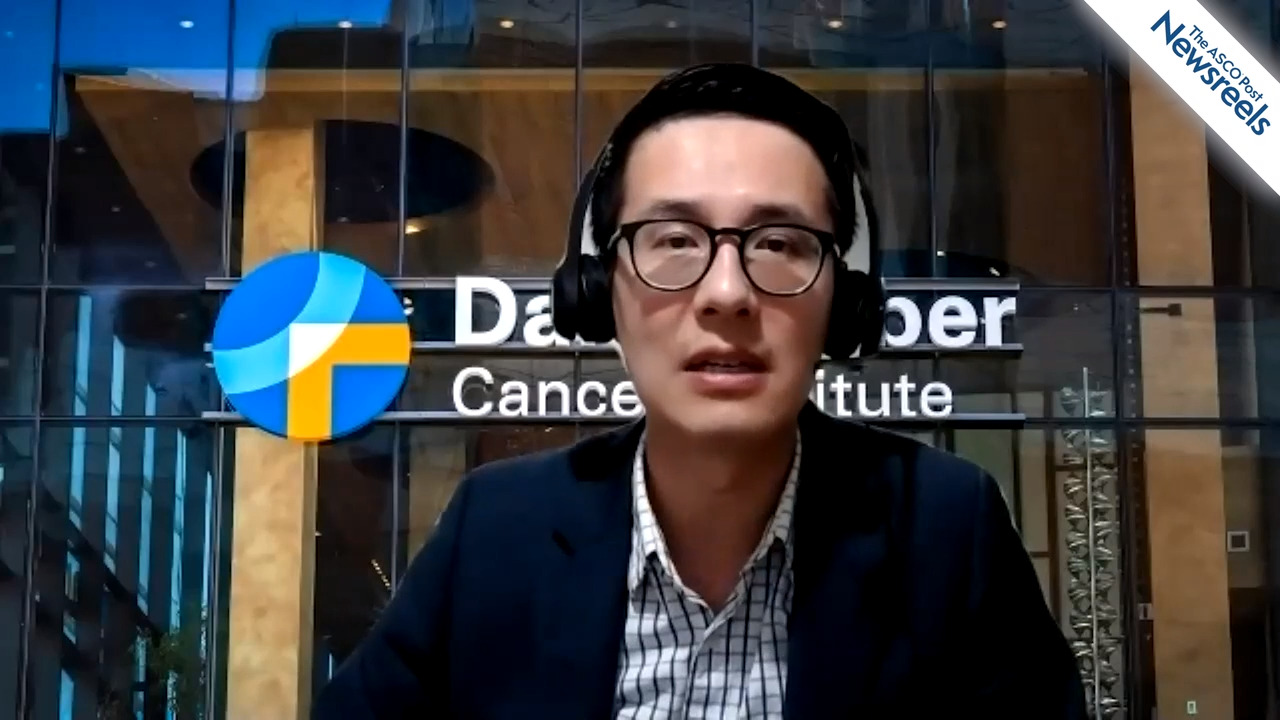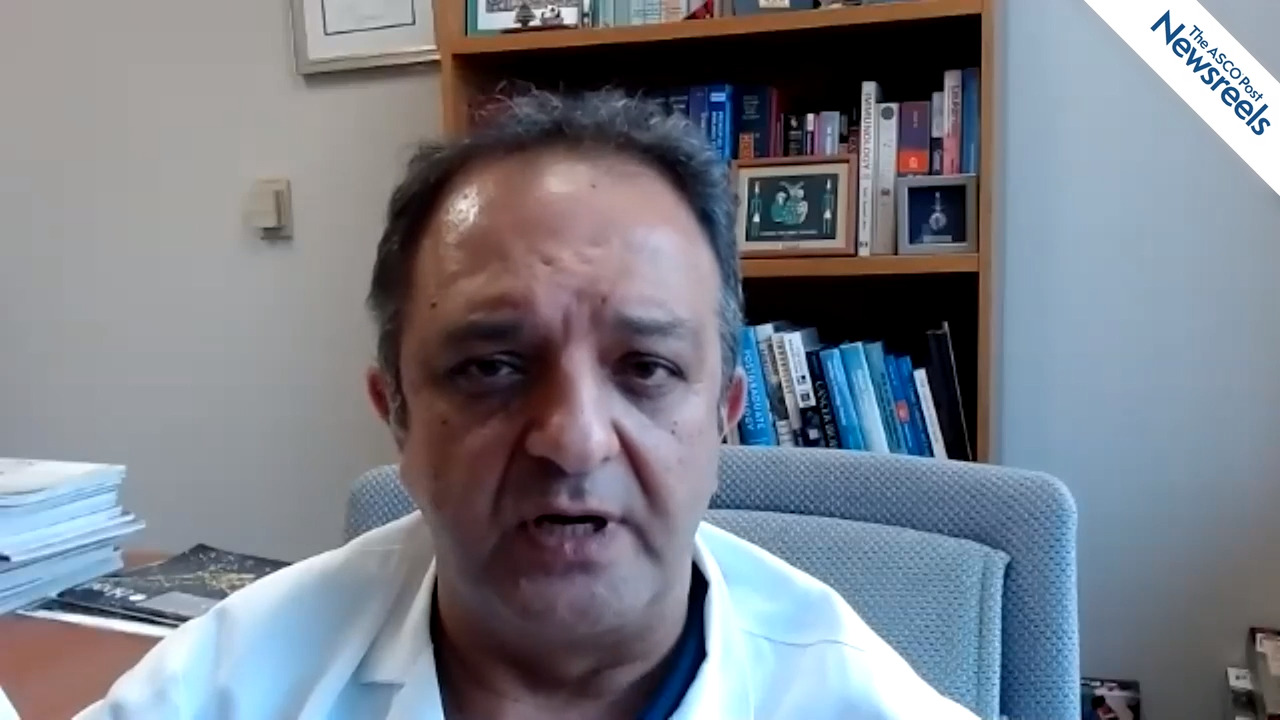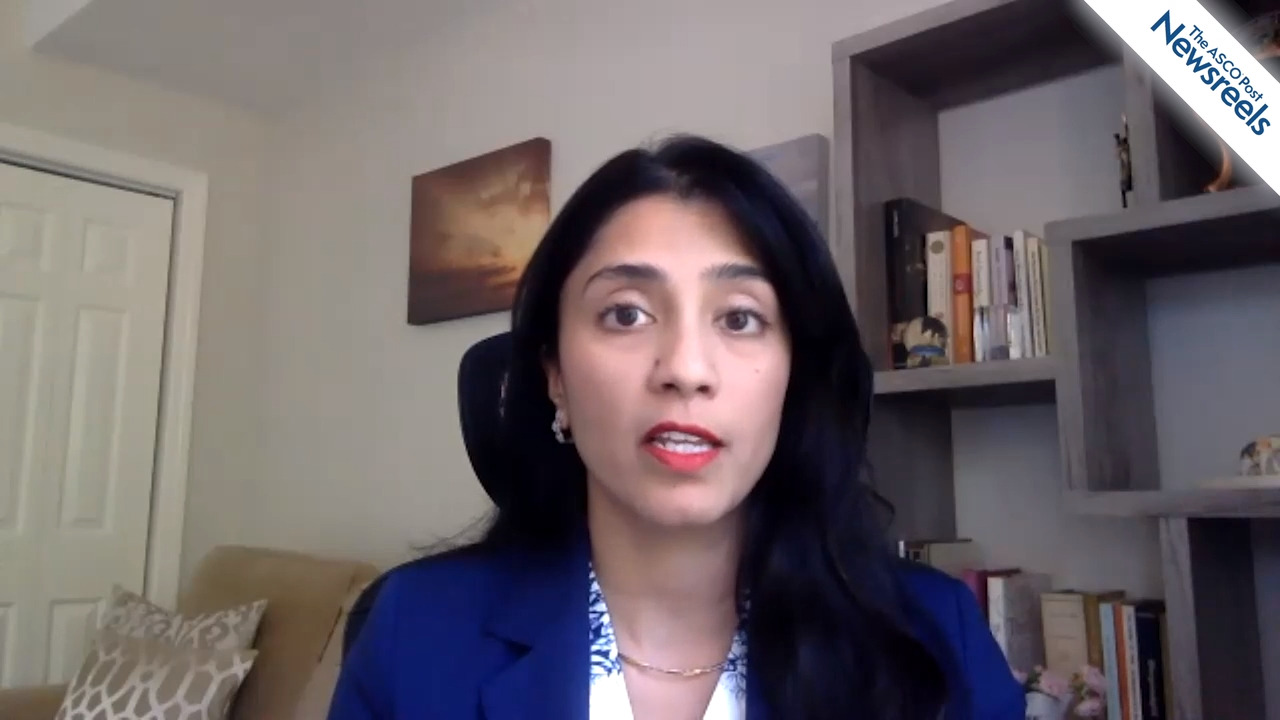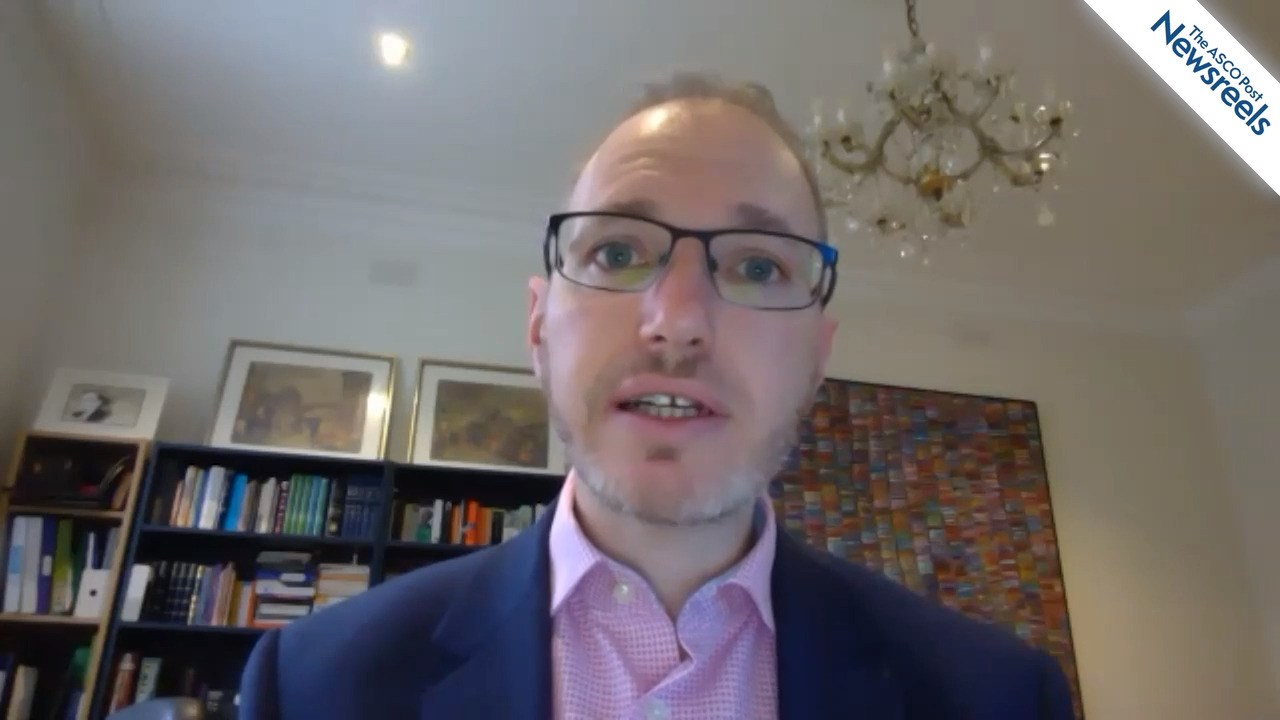Tingyan Shi, MD, PhD, on Ovarian Cancer: Secondary Cytoreductive Surgery for Recurrent Disease
ASCO20 Virtual Scientific Program
Tingyan Shi, MD, PhD, of Zhongshan Hospital, Fudan University, discusses study results that showed secondary cytoreductive surgery in selected patients extended progression-free survival and might contribute to long-term survival (Abstract 6001).
The ASCO Post Staff
Neal D. Shore, MD, of the Carolina Urologic Research Center, discusses phase III results of the HERO study, which showed relugolix achieved castration as early as day 4 and was superior to leuprolide in sustained testosterone suppression, testosterone recovery after discontinuation, and reduction in cardiovascular side effects (Abstract 5602).
The ASCO Post Staff
Eric Zhou, PhD, of Dana-Farber Cancer Institute, discusses an existing online program called SHUTi (Sleep Healthy Using the Internet), that he and his team adapted to the needs of adolescent and young adult cancer survivors. After six online cognitive behavior therapy sessions delivered over 8 weeks, the 22 patients in the study reported a significant reduction in insomnia severity, daytime sleepiness, and fatigue as well as an overall improvement in quality of life.
The ASCO Post Staff
Farhad Ravandi-Kashani, MD, of The University of Texas MD Anderson Cancer Center, discusses updates from a phase I dose-escalation study of AMG 330, a bispecific T-cell engager molecule. It showed early evidence of an acceptable safety profile, drug tolerability, and antileukemic activity, supporting further dose escalation in patients with acute myeloid leukemia (Abstract 7508).
The ASCO Post Staff
Lakshmi Nayak, MD, of Dana-Farber Cancer Institute, reviews two key abstracts on newly diagnosed primary central nervous system lymphoma and treatment with whole-brain radiotherapy, methotrexate, temozolomide, rituximab, procarbazine, vincristine, and cytarabine (Abstracts 2500 and 2501).
The ASCO Post Staff
Michael S. Hofman, MBBS, of the Peter MacCallum Cancer Centre, discusses phase II results from the ANZUP 1603 trial, which showed that in men with docetaxel-treated metastatic castration-resistant prostate cancer, LuPSMA was more active than cabazitaxel, with relatively fewer grade 3 and 4 adverse events and a more favorable PSA progression-free-survival (Abstract 5500).
